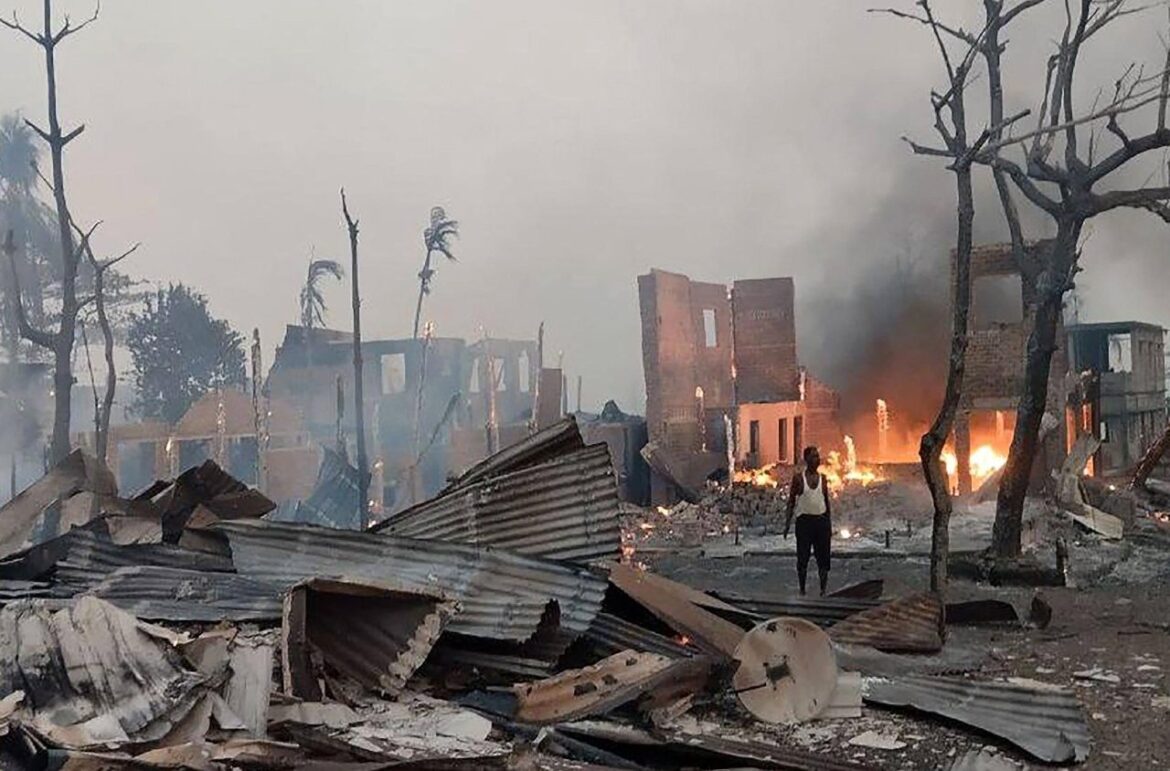
As the bloodshed continues in Myanmar and civil war continues to cripple the country, Bishop Peter Tin Wai of Pyay in the Rakhine state decries the tragic effects for innocent civilians, who are ‘just trying to survive,’ including for young people, who, being forced to enlist and fight, are determined to flee.
By Deborah Castellano Lubov
Innocent civilians In Myanmar’s Rakhine state are suffering as the fighting continues, laments the Bishop of Pyay, Peter Tin Wai.
According to the Pontifical news agency Fides, the Bishop – whose Diocese covers nearly the entire territory of the state in western Myanmar – drew attention to the ongoing struggles as the civil war wreaks havoc and claims lives.
Tragically, this includes the recent airstrike carried out by the Burmese army on 12 September, which targeted two private schools in the town of Kyauktaw, killing 20 young people between the ages of 15 and 21.
Intense fighting also continues along the eastern border of Rakhine State.
In most of the state, Bishop Tin Wai told Fides, power is in the hands of the Arakan Army (AA), an ethnic armed group that has taken control of most of Rakhine and is fighting against the Burmese regular army. The AA now holds 14 of 17 municipalities.
Having lost ground, Fides explains, the Burmese army is resorting to aerial bombings that also hit civilian homes and buildings.
‘People are just trying to survive’
In many areas, the Burmese Bishop lamented, “communication is cut off, the education system is in crisis, and people are just trying to survive.”
The Bishop explained that his Diocese, with some 30,000 faithful, has twelve parishes in that territory are continuing their mission.
“The priests stay close to the people, they are struggling, trying to get by with daily life and sustain themselves materially; they also strive to celebrate the sacraments and keep the churches open amid the suffering,” he says.
He noted that about half of his diocesan faithful live in areas controlled by the AA, whereas the other half are “in the three municipalities of Sittwe, Kyaukpyu, and Munaung, which are still under army control.”
Displacement inevitably continues
“The situation on the ground,” he lamented, “continues to cause displacement. Refugees come to Pyay or leave the state for Yangon, seeking safety. There is a shortage of rice in Rakhine, and many lack education and health care.”
Hence, he explained that families try to move to areas where essential services like schools still function.
In this time marked by rampant violence, Bishop Tin Wai explained that “innocent civilians are caught between two warring armies” and that with both forces having imposed conscription, with young people being “forced into enlisting and fighting.”
“That’s why,” he lamented, “all our youth are fleeing abroad, and society is losing its best energy.”

